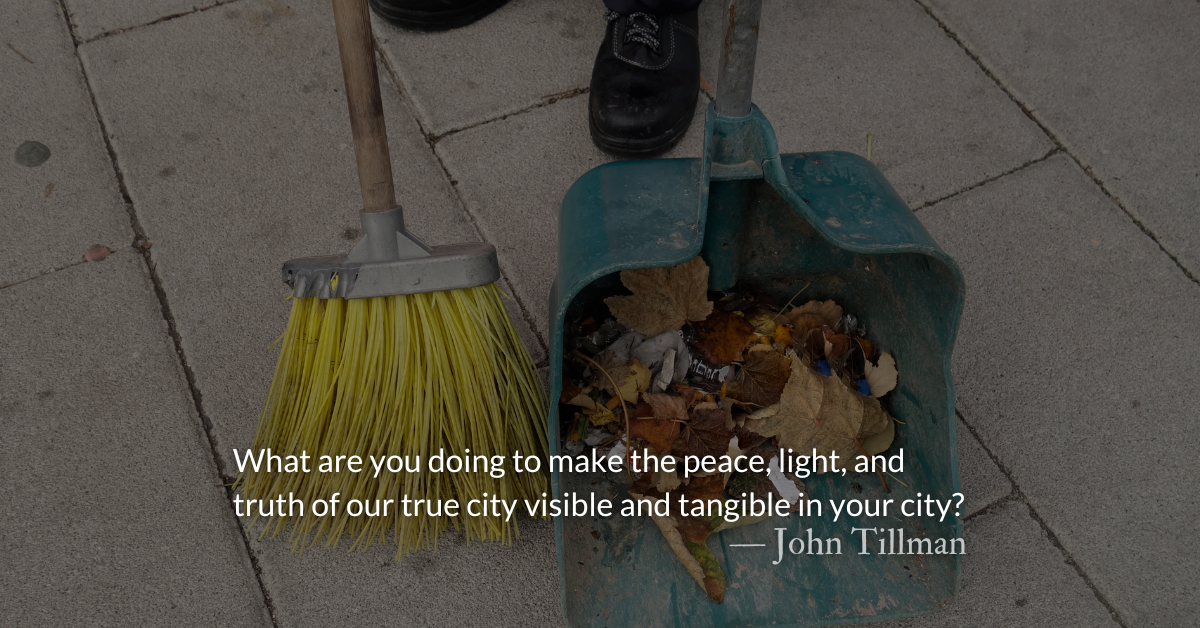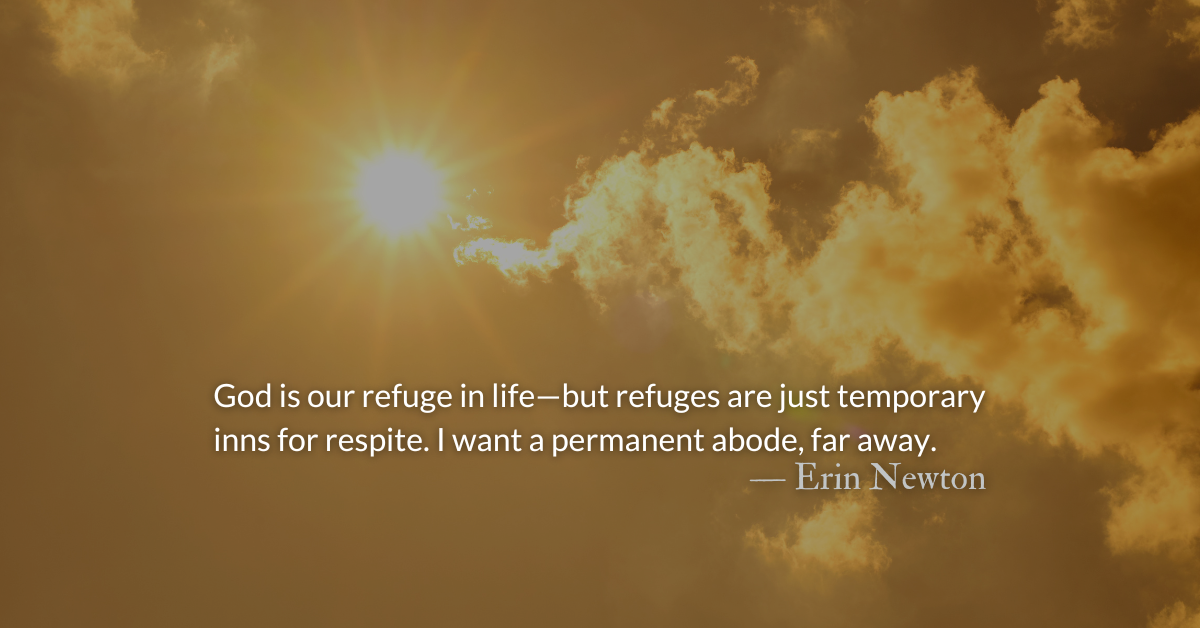Scripture Focus: Isaiah 26.1-6
1 In that day this song will be sung in the land of Judah:
We have a strong city;
God makes salvation its walls and ramparts.
2 Open the gates
that the righteous nation may enter,
the nation that keeps faith.
3 You will keep in perfect peace
those whose minds are steadfast,
because they trust in you.
4 Trust in the Lord forever,
for the Lord, the Lord himself, is the Rock eternal.
5 He humbles those who dwell on high,
he lays the lofty city low;
he levels it to the ground
and casts it down to the dust.
6 Feet trample it down—
the feet of the oppressed,
the footsteps of the poor.
Reflection: People of Two Cities
By John Tillman
Isaiah describes a prideful city to be destroyed.
Despite great effort and great pains of labor, the city birthed death not life, pain not blessing, oppression not freedom, and mourning not joy. God uncovers hidden bloodshed and violence in this city.
The Lord will leave his city to bring judgment. Despite dwelling on the heights, the wicked city will be brought low. Despite mighty walls, both walls and buildings will be leveled, not one stone upon another. Despite lofty leaders, their achievements become a domain of destruction.
The only signs of life in the wicked city will be the feet of the poor and the oppressed. The steps of those formerly oppressed beneath the feet of the powerful will stir the dust and ashes of their oppressors on a pilgrimage to a new city.
Isaiah describes the righteous, eternal city.
It is a city of people who trust God for their peace. It is a shelter for refugees escaping the wicked city. It is a haven for those fleeing the wilderness. It is a city of life for those brought back from the dead. The righteous city has walls built from salvation and gates eternally open to all who will trust and enter.
Which city do believers live in? We are people of two cities. Both cities are literal and physical. Both cities are metaphorical and metaphysical.
We are born in the wicked city and live there still. “Other lords” rule over us. (Isaiah 26.13) Many around us “do not learn of righteousness” and “go on doing evil.” (Isaiah 26.10) We are physically present in the wicked city now and when we are absent from it we will be present with the Lord in his city. (2 Corinthians 5.1-10)
We are born again into citizenship in the righteous city. Our new kingdom is from another place. (John 18.36) We are transferred from the domain of darkness to the city of light. (Colossians 1.12-13) Yet, we are not fully present there. We are “already but not yet” home. We are in transition.
We are semi-exiles, commanded to pray for the wicked city we find ourselves in and work toward its good. (Jeremiah 29.7) We are not expected to perfect it, but we are expected to represent the reality of our better city in this one.What are you doing to make the peace, light, and truth of our true city visible and tangible in your city?
From John: As I wrote this last line, I was thinking of a reader who has made a big difference in his non-Christian, urban neighborhood, simply by sweeping his block every morning and cleaning up the cigarettes, bottles, syringes, and other trash that accumulates overnight. There’s no such thing as a small act of service when it comes to the gospel.
Divine Hours Prayer: The Morning Psalm
But let the righteous be glad and rejoice before God; let them be merry and joyful.
Sing to God, sing praises to his Name; exalt him who rides upon the heavens; Yahweh is his Name, rejoice before him!
Father of orphans, defender of widows, God in his holy habitation! — Psalm 68.3-5
– From The Divine Hours: Prayers for Summertime by Phyllis Tickle.
Today’s Readings
Isaiah 26 (Listen 2:58)
Acts 13 (Listen 7:36)
Read more about Paul’s First Sermon
We, like Paul, are responsible to respond to the world’s need for paráklēsis— for encouragement, comfort, and exhortation.
Read more about A Difficult Birth
Israel was supposed to birth goodness, salvation, and life into the world. Instead, they brought death, enslavement, and evil.











